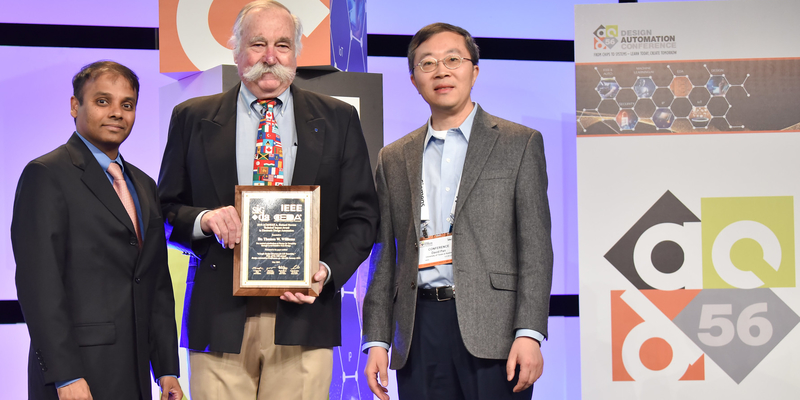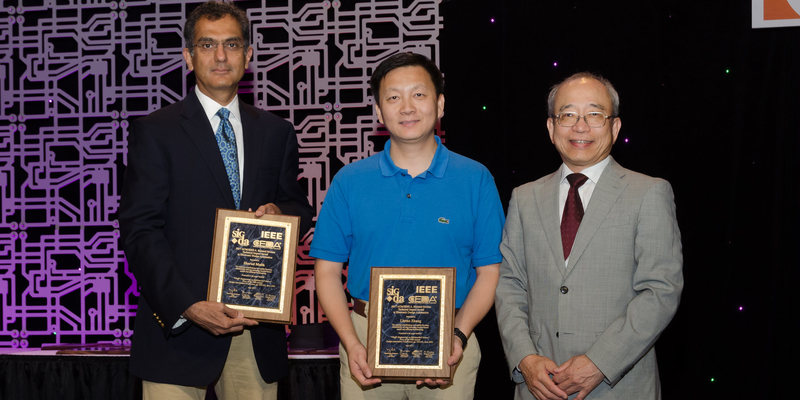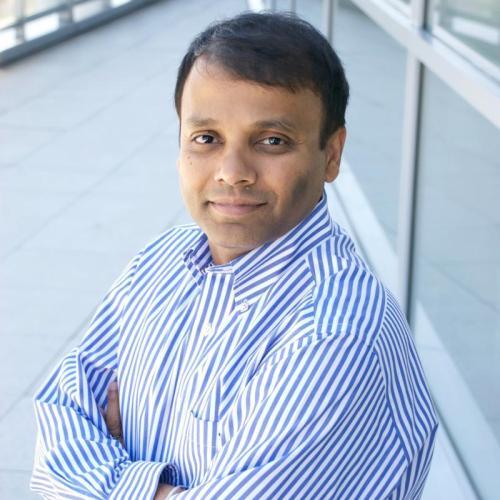Award/Recognition Menu
To honor a person or persons for an outstanding technical contribution within the scope of electronic design automation, as evidenced by a paper published at least ten years before the presentation of the award.
1500 USD to be shared amongst the authors and a plaque for each author. For groups of more than five awardees, there will be a minimum of 300 USD honorarium per contributor.
Funded by the IEEE Council on Electronic Design Automation and ACM Special Interest Group on Design Automation.
Presented annually at the Design Automation Conference (DAC).
A. Richard Newton, one of the foremost pioneers and leaders of the EDA field, passed away on 2 January 2007, of pancreatic cancer at the age of 55.
A. Richard Newton was professor and dean of the College of Engineering at the University of California, Berkeley. Newton was educated at the University of Melbourne and received his bachelor’s degree in 1973 and his master’s degree in 1975. In the early 1970’s he began to work on SPICE, a simulation program initially developed by Larry Nagel and Donald Pederson to analyze and design complex electronic circuitry with speed and accuracy. In 1978, Newton earned his Ph.D. in electrical engineering and computer sciences from UC Berkeley.
For his research and entrepreneurial contributions to the electronic design automation industry, he was awarded the 2003 Phil Kaufman Award, the highest recognition for contributions to the EDA field. In 2004, he was named a member of the National Academy of Engineering, and in 2006, of the American Academy of Arts and Sciences. He was a member of the Association for Computing Machinery and a fellow of the Institute of Electrical and Electronics Engineers.
The impact of the paper which has made an outstanding technical contribution in the scope of electronic design automation through a paper published at least ten years before the award is presented. The award shall be based on the impact of the paper in the field of electronic design automation published ten years or more before the year the award is presented.
Open to authors of a paper in the field of electronic design automation published ten years or more before the award is presented. The paper must have passed through a peer-review process before publication, be an archived conference or journal publication available from or published by either ACM or IEEE, and be a seminal paper where an original idea was first described. Follow-up papers and extended descriptions of the work may be cited in the nomination, but the award is given for the initial original contribution.
2024
2023
2022
2021
2020
2019

For seminal contributions to modern VLSI placement optimization research impacting both academia and industrial practices.
VP Awards, Subhasish Mitra, Thomas W. Williams, and ACM SiGDA Chair David Pan
2018
For seminal contributions to VLSI placement impacting academic and industrial practices.
2017

For seminal contributions to scalable Boolean satisfiability solving including locality-based search and efficient backtracking.
S. Malik, L. Zhang, and VP Awards H. Onodera
2016
2015
2014
2013
2012
For advancing the theory and implementation of model order reduction for efficient circuit analysis via dominant pole/zero methods.
2011
For pioneering work on technology mapping for FPGA (field-programmable gate array) that has made a significant impact on the FPGA research community and industry.
2010
For developing Reduced Ordered Binary Decision Diagrams forming the foundation for symbolic manipulation of logic designs with broad impacts in academia and industry.
2009
For seminal contributions to multilevel logic optimization impacting research, education, and industrial practice.




























